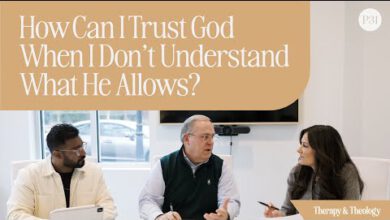Lysa TerKeurst on Resetting Your Heart | Proverbs 31 Conference
This morning, I want to share one of my favorite scriptures. I’ve discussed this topic before, but I have new insights I’d like to explore, particularly around the concept of resetting our hearts. Today, we’ll talk about the idea of hitting the pause button on life—on our troubles, stresses, and the chaos we either left at home or are heading back to. While all these issues will still be waiting for us when we return, taking a moment to pause can provide us with a valuable reset.
Although our circumstances may not change, our perspective can. If we learn something new today, we can return home and rewrite our internal narratives. Often, the healing we seek isn’t just about the events we endure; it’s also about the stories we tell ourselves. By resetting our internal dialogue, we can change how we view our futures.
Many of us may have quietly given up on hope. This “quiet quitting” refers to being physically present but emotionally disengaged. People often quietly quit their jobs when they feel unappreciated—they show up daily but lack motivation because they believe their efforts won’t make a difference. This can also happen in relationships; we might feel overwhelmed and resign ourselves to just going through the motions without truly engaging. Tragically, some of us even quietly quit on hope. We may attend church, sing praise songs, and recite Bible verses, yet inside, we may have more faith in negative outcomes than in God’s promises.
Today, as we hit the reset button, I aim to restore our hope and address what’s happening in our hearts. A wonderful example from the Bible is Joseph. One of my favorite verses, found in Genesis 50:20, speaks powerfully to this. Joseph says, “You intended to harm me, but God intended it for good, to accomplish what is now being done, the saving of many lives.” This verse candidly addresses the hardships of being human.
Often, as Christians, we feel the urge to tidy up our stories or present them in a more palatable way. But Joseph does not sugarcoat his experience; he acknowledges the intention to harm. The pivotal phrase here is “but God.” In this contrast, Joseph demonstrates that he didn’t quietly give up on hope. Instead, he recognizes that God turned his pain into something good, achieving a greater purpose.
Sometimes, when we read stories like Joseph’s, we may think, “That’s great for him, but I’m not Joseph.” Many of us feel insignificant in our own lives, believing we cannot have the same impact as someone like Joseph. However, in the grand scheme of eternity, what seems important on Earth may be quite small in heaven, and what appears trivial here can hold great significance there.
As we reflect on Joseph’s story, let us remember that our lives can have a profound impact, too. Through faith and perseverance, we can find hope and purpose in our own narratives.
